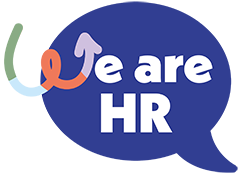Table Of Contents
- How to Become an HR Manager: A Complete Guide for Aspiring Professionals
- Introduction
- The Evolving Role of an HR Manager
- Key Responsibilities of an HR Manager
- Essential Skills for HR Managers
- Salary Expectations for HR Managers in the UK
- Qualifications Needed to Become an HR Manager
- Steps to Becoming an HR Manager
- Why Choose We-are-HR for Your CIPD and CMI Training?
- Conclusion: People and Learners at the Heart of HR Success
Introduction
In today’s dynamic business environment, human resources (HR) have evolved beyond administrative tasks to become a strategic partner in driving organisational success. If you aspire to influence workplace culture, shape employee experiences, and lead talent strategies, a career as an HR manager might be the perfect fit for you.
This guide explores the essential steps to becoming an HR manager, highlighting key responsibilities, necessary qualifications, and how We-are-HR’s CIPD and CMI-approved courses can propel your career forward.
The Evolving Role of an HR Manager
Gone are the days when HR was solely about handling payroll and paperwork. Modern HR managers are strategic leaders who play a pivotal role in shaping company culture, driving employee engagement, and ensuring legal compliance.
With the rise of remote work, diversity and inclusion initiatives, and data-driven decision-making, HR managers need to be adaptable, forward-thinking, and equipped with both technical and interpersonal skills.
Key Responsibilities of an HR Manager
Employee Relations
A core responsibility of HR managers is fostering positive relationships within the workplace. This involves:
- Conflict Resolution: Mediating disputes to maintain harmony and productivity.
- Employee Engagement: Developing initiatives that boost morale and retention.
- Exit Processes: Conducting exit interviews to gather feedback and improve workplace practices.
Legal Compliance
HR managers ensure that organisations adhere to employment laws and regulations, including:
- Equality Act 2010
- Health & Safety at Work Act 1974
- Data Protection Act 2018
Staying updated with legal changes is crucial to mitigating risks and fostering a fair work environment.
Talent Acquisition and Management
HR managers collaborate with recruitment teams to attract, hire, and retain top talent. Responsibilities include:
- Crafting job descriptions
- Overseeing recruitment strategies
- Enhancing onboarding processes
Training and Development
Supporting employee growth through:
- Identifying skill gaps
- Designing learning programmes
- Promoting continuous professional development
Essential Skills for HR Managers
- Communication: Clearly conveying information across all organisational levels.
- Leadership: Inspiring and guiding teams towards achieving business goals.
- Problem-Solving: Addressing workplace challenges with effective solutions.
- Adaptability: Navigating change in dynamic business environments.
Salary Expectations for HR Managers in the UK
HR manager salaries vary based on location, industry, and experience:
- London: £60,000 – £85,000
- Scotland: £55,000 – £75,000
- Northwest England: £50,000 – £68,000
These figures reflect the demand for skilled HR professionals across the UK.
Qualifications Needed to Become an HR Manager
CIPD Qualifications
The Chartered Institute of Personnel and Development (CIPD) is the gold standard for HR certifications:
- Level 3 – Foundation Certificate in People Practice
- Level 5 – Associate Diploma in People Management
- Level 5 – Associate Diploma in Organisational Learning and Development
- Level 7 – Advanced Diploma in Strategic People Management
- Level 7 – Advanced Diploma in Strategic Learning and Development
HR Degrees
A degree in HR or related fields provides a strong theoretical foundation. Top UK universities offer specialised courses in HR management, covering topics like organisational behaviour and employment law.
CMI Courses
The Chartered Management Institute (CMI) offers leadership-focused qualifications that complement HR skills. CMI courses enhance strategic thinking, people management, and decision-making abilities.
- CMI Level 5 Diploma in Management & Leadership
- CMI Level 5 Certificate in Management & Leadership
- CMI Level 7 Diploma in Strategic Management & Leadership Practice
- CMI Level 7 Certificate in Strategic Management & Leadership Practice
Steps to Becoming an HR Manager
- Choose the Right Qualification: Enrol in CIPD or CMI courses that align with your career goals.
- Gain Practical Experience: Seek internships, volunteer roles, or HR assistant positions.
- Develop Core HR Skills: Focus on communication, leadership, and problem-solving.
- Specialise in Key HR Areas: Explore employee relations, talent management, or learning and development.
- Continuous Professional Development: Attend workshops, webinars, and conferences to stay updated.
Why Choose We-are-HR for Your CIPD and CMI Training?
At We-are-HR, we’re dedicated to empowering HR professionals through accredited CIPD and CMI courses. As an approved training centre, we offer:
- Expert Tutors: Learn from industry leaders with real-world experience.
- Flexible Learning Options: Study at your own pace, online or in-person.
- Fast-Track Option Available: Finish your qualification earliest possible.
- Learner First Approach: Receive guidance throughout your learning journey.
Our courses are designed to equip you with the skills and knowledge needed to excel in HR and leadership roles.
Conclusion
Becoming an HR manager is a rewarding career choice, offering opportunities to influence organisational success and support employee growth. With the right qualifications, practical experience, and continuous development, you can achieve your HR career aspirations.
Ready to take the next step? Enrol in We-are-HR’s CIPD and CMI courses today and start your journey towards HR leadership success.


